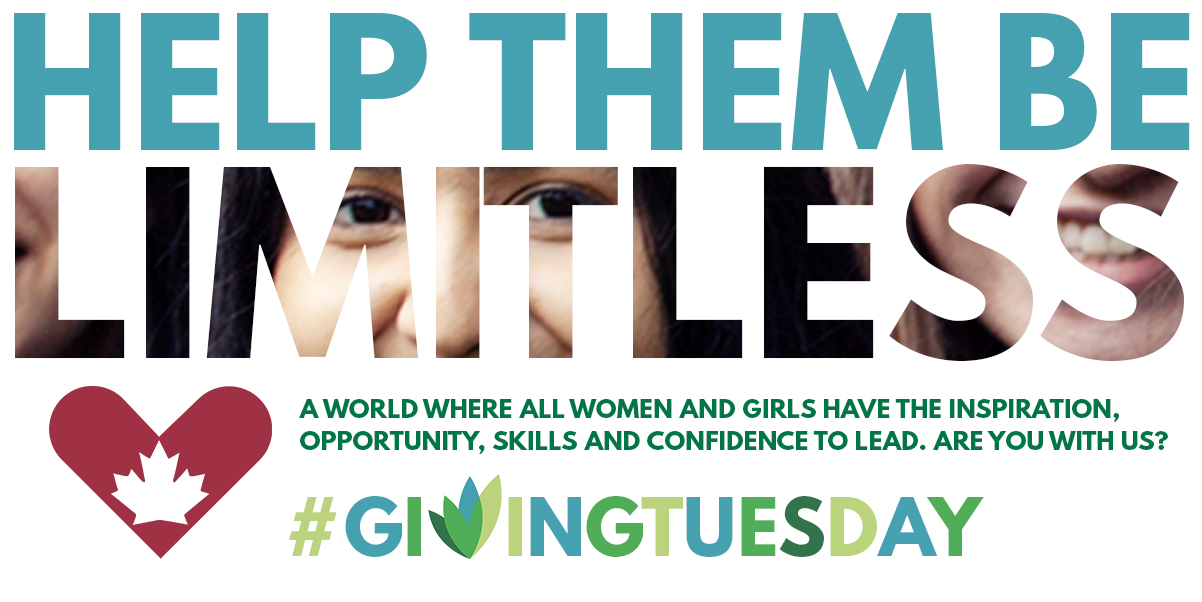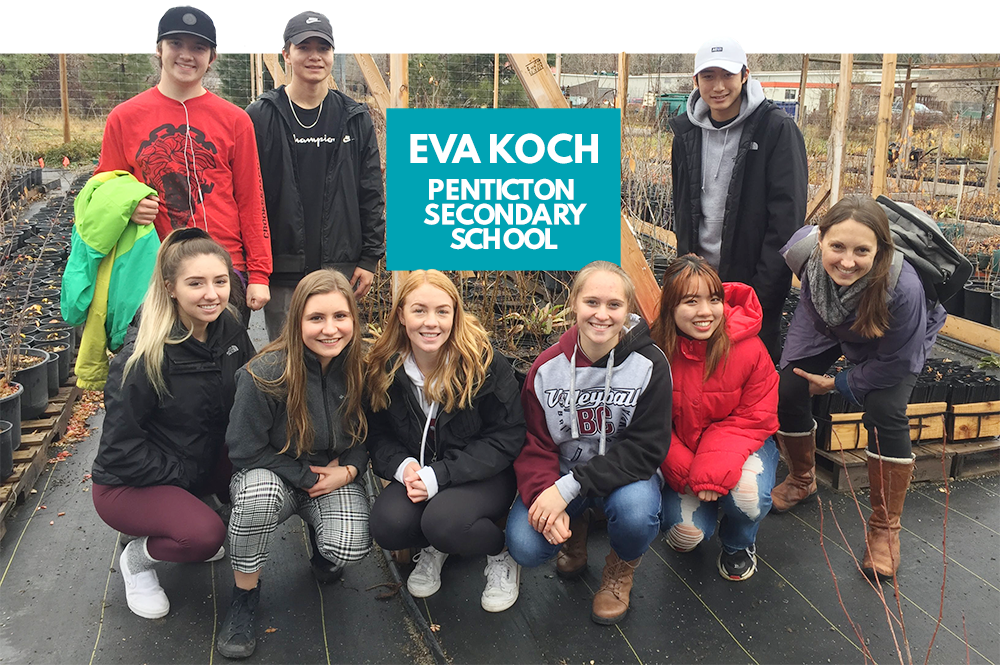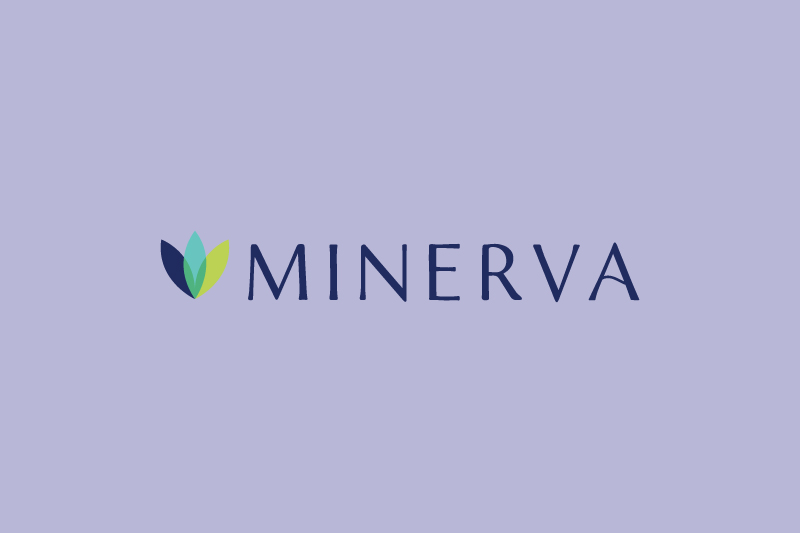As #GivingTuesday 2021 approaches, we believe this is the perfect time to acknowledge and give thanks to champions like Eva Koch, who are leading positive change in their communities. An amazing educator teaching at the Penticton Secondary School, Eva is giving wings to the next generation to help them be limitless.

Eva lives in Penticton, on the traditional, unceded and ancestral territory of the Okanagan Syilx peoples. She is a Social Studies teacher at Penticton Secondary School, teaching Social Studies 10-11 and Social Justice 12. This year, she is working with the Indigenous Education team to support Indigenous students with graduation requirements and ensure they have all the support needed to feel safe, welcome, and included at school.
We caught up with Eva (virtually) at the start of the school year, read on for what she had to say.

What are you most looking forward to this school year?
I am most looking forward to seeing students in person again – reconnecting with former students and building new relationships. Last school year (2020-2021), I was teaching online due to COVID-19 and I found that it just wasn’t the same! I really enjoy getting to know students, learning about their interests and hobbies and I love hearing about all the things going on in their lives. For me, the pandemic has highlighted just how valuable and important in-person relationships really are. I am looking forward to having students in my classroom, day in and day out, observing their ups and downs, hearing about what’s important to them and seeing them smile!
I have also missed our field trips/ land-based learning. Taking students on the land with knowledge keepers has given me and students a deeper appreciation and sense of responsibility for the land we call home. Teaching in this way allows me and the students to hear a different, more complete version of history than what is in the textbooks. When local Syilx knowledge keepers share some of their experiences, culture and perspective, it fundamentally changes how we see ourselves and Penticton.
I look forward to visiting or volunteering with students at local community organizations again, as they learn about local concerns and observe how these organizations work towards reconciliation.
When do you feel most inspired in your role as an educator?
I feel most inspired when students take up projects and display real passion and commitment. I would like to share an example here: some young leaders organized We for She South Okanagan two years in a row. They worked hard to put on successful events with amazing guest speakers. They learned from mistakes and understood that learning is an integral part of leadership. Seeing my students take initiative to better our community, inspires me beyond words.
What changes have you witnessed in the students you’ve put forward for Learning to LeadTM?
I really appreciate, value and choose to promote the Learning to LeadTM program because it is such a great opportunity for the young emerging leaders to meet others across the province, be connected to inspiring mentors, and be supported and encouraged to take action.
Changes that I have noticed in the students that I have nominated include increased confidence, greater clarity on goals and passions, increased professionalism and growing networking skills. Mostly they feel inspired to act on what they’ve always wanted to do.
Why is it important to create opportunities for youth to learn leadership skills?
Supporting the development of leadership skills is important on so many levels – our world desperately needs it, for one. For another, students often have greats ideas but don’t necessarily have all the know-how! They have the passion and interest in helping others, and they start showing glimpses of leadership skills, but they just need a little support and mentorship along the way. This might sound cheesy, but it’s a bit like gardening – snow peas already know how to grow and do their thing, but they just need a bit of a framework or trellis to guide them. Without the trellis, they will still flower, but they will certainly be healthier and grow better when they are cared for better.
What is something you’d like people to know about the young leaders you work with?
I’d like people to know that teenagers are not that scary. People always have the same reaction when I tell them I teach high school – “Oh wow, you must be brave!”. I don’t really feel that way about young adults. I find them bright, capable and curious. They want to be engaged and want to know how things work and they care very deeply about issues that matter.
I believe they need to be involved in important conversations about race, equity, homelessness, reconciliation and climate change as all this knowledge will be relevant in any field they choose in the future. Teens often have realistic and practical solutions to problems. They need to be involved and mentored so they can get the experience to move into leadership roles with the knowledge that many adults in older generations just do not possess.
There is tremendous opportunity for discussion, collaboration, and partnership between adults and youth regarding the current pressing issues in the Canadian society. These kids will grow up with greater awareness about the long-term impacts on intergenerational trauma from residential school, for instance. They will have a broader and more compassionate approach to inclusion and problem-solving for a wider range of real issues. We need to listen to this youthful energy and support them into the very important roles they will be taking on.
Once again, Minerva BC would like to thank Eva and all the educators out there for being incredible teachers and for positively influencing the lives of their students.

